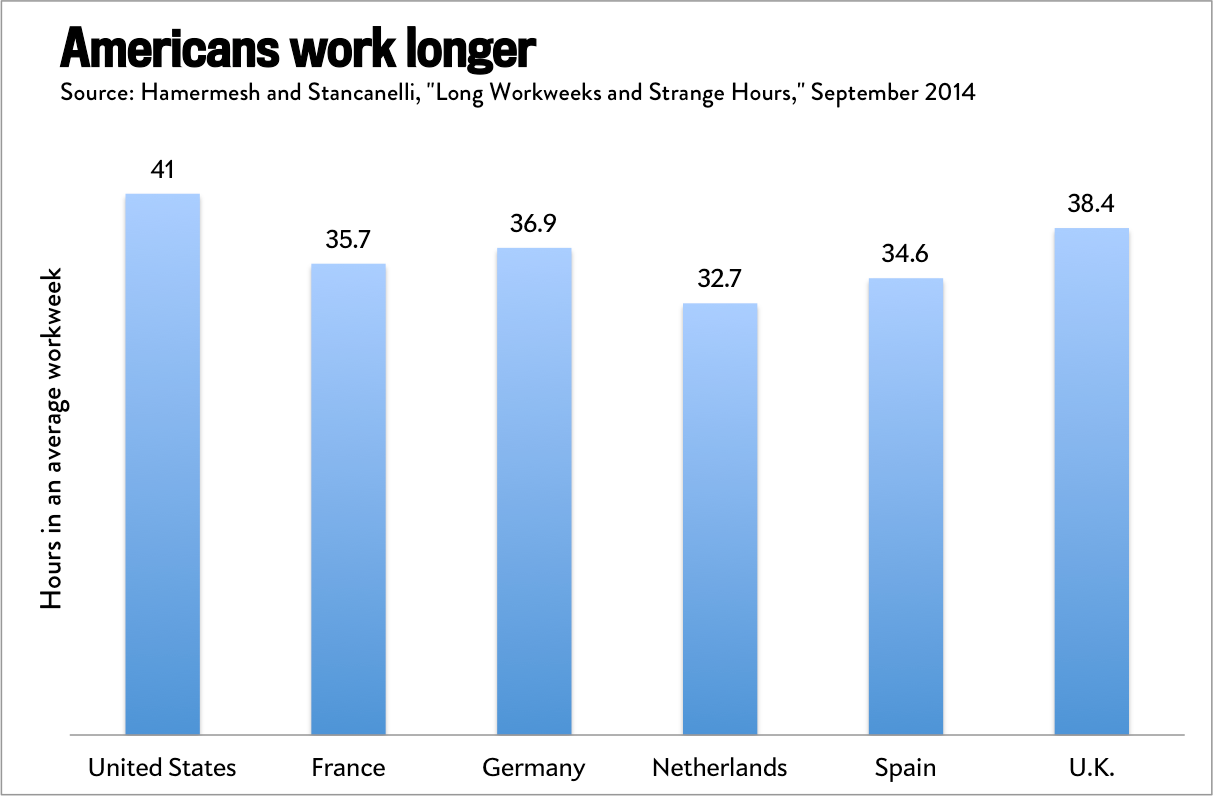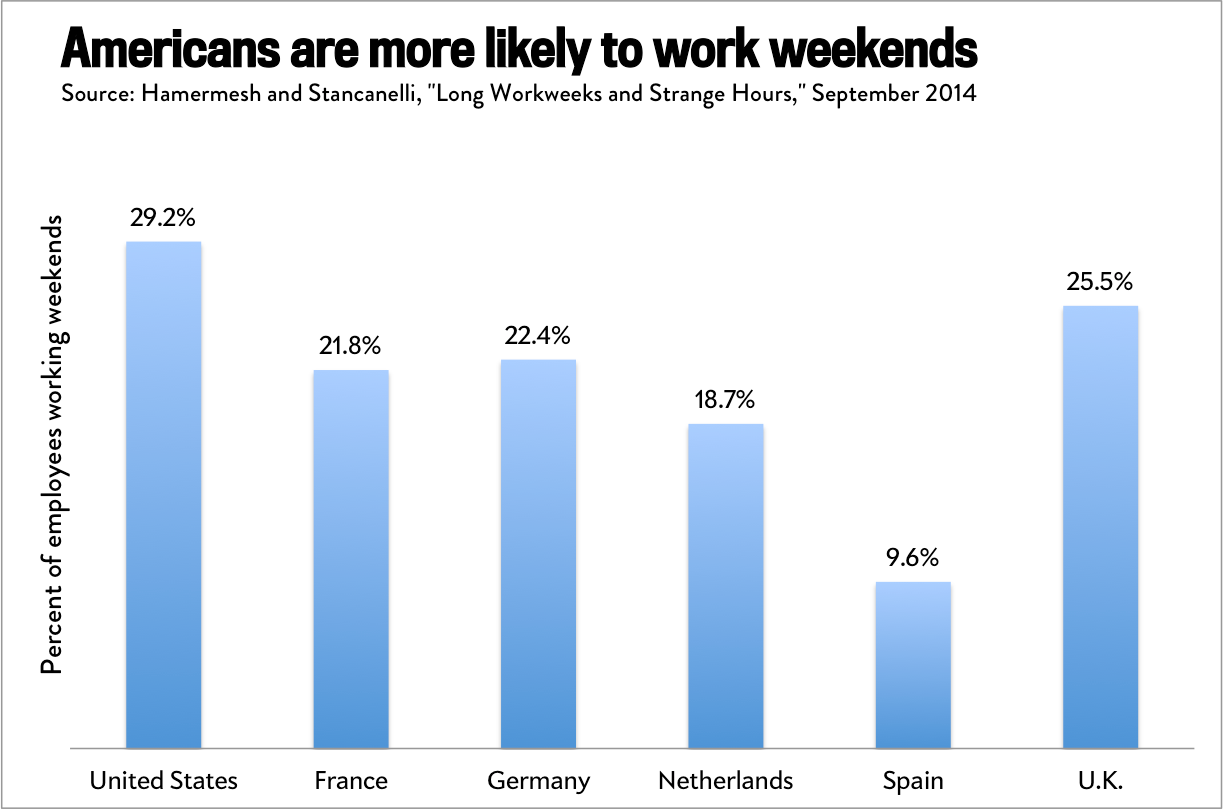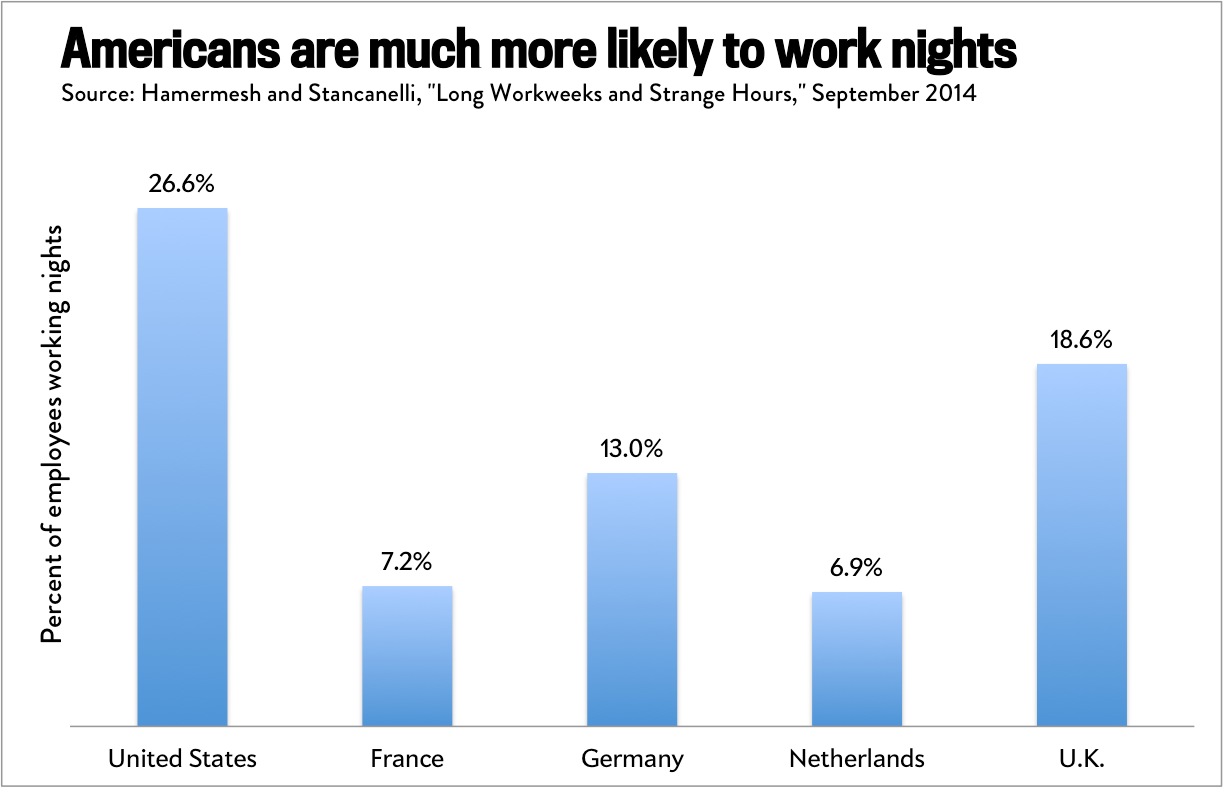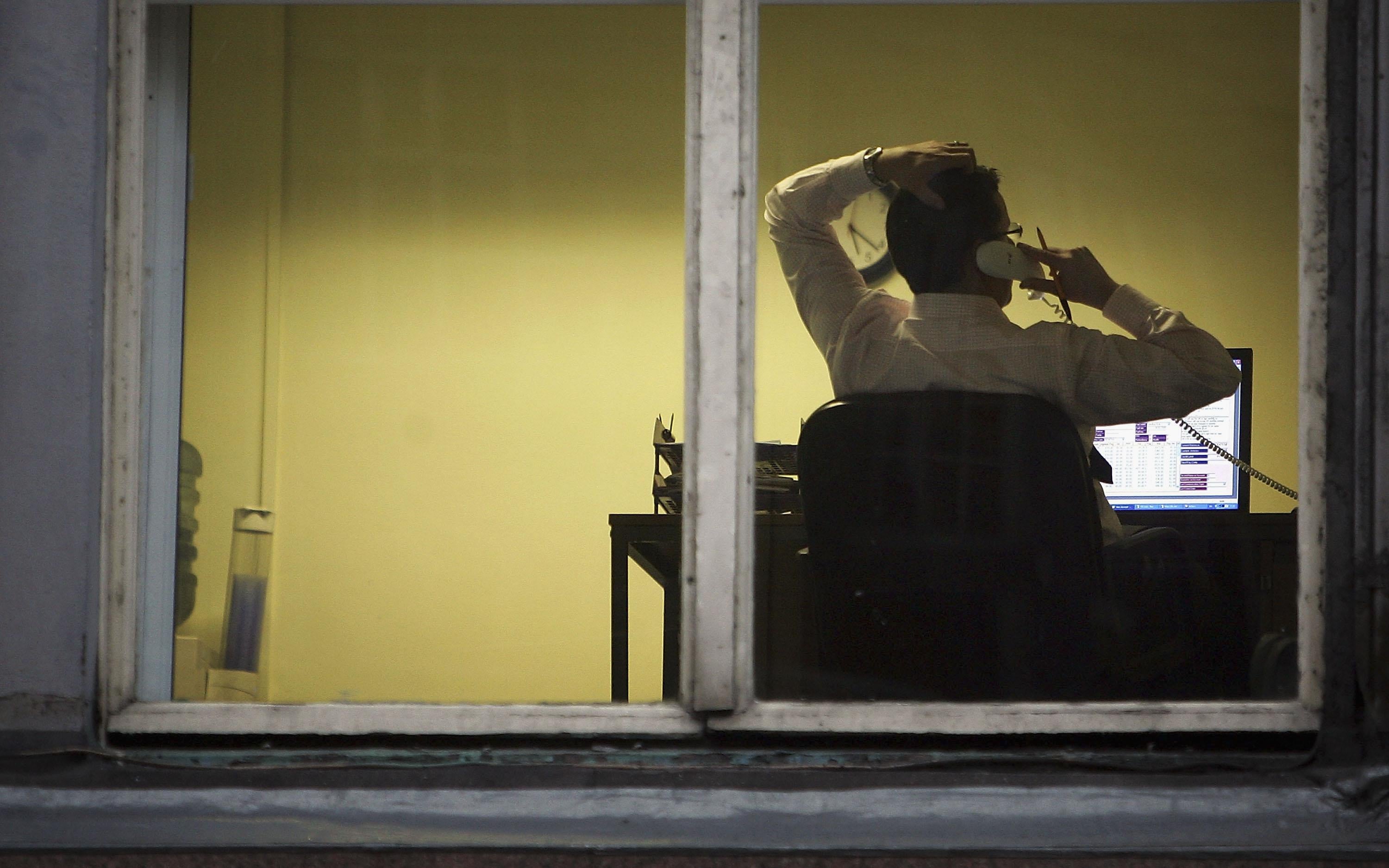Work-life balance isn’t really America’s strong suit. We spend more hours on the job than most other developed countries. We don’t get much vacation time, and we don’t even use all of the vacation days our bosses do give us. And as economists Daniel Hamermesh and Elena Stancanelli tell us in a new working paper this week, we’re unusually prone to working nights and weekends.
These graphs, which I put together some time around 11 o’clock last night, tell the story. Some of the European time-use surveys Hamermesh and Stancanelli drew from date back to the late 1990s, but they still give us a flavor of the global differences; the American data, meanwhile, is current through 2011.
First, our average work hours. They’re long.

Data: Hamermesh and Stancanelli
Meanwhile, nearly 30 percent of us work weekends, compared with around 22 percent of the oh-so-industrious Germans.

Data: Hamermesh and Stancanelli
But where we really shine is on the night shift. More than a quarter of Americans toil away after 10 p.m. The Dutch? Only 6.9 percent. (In case you were wondering, there was no data for famously-late-to-bed Spain on this front.)

Data: Hamermesh and Stancanelli
In general, Hamermesh and Stancanelli find that Americans who work longer hours overall are also more likely to get stuck chugging away in the evenings and on weekends. In a sense, that’s comforting, since the people who tend to work extra-long hours are usually highly educated and highly paid.
But the sheer time we spend working doesn’t explain why so many of us find ourselves staring into a glowing Outlook screen at 12:43 a.m. on a Wednesday. Even if Americans worked the same amount of time as the French, Dutch, or British, Hamermesh and Stancanelli find that we’d still be more likely to stay up late tooling around with Excel, reading memos, or doing whatever else it is that keeps us up at ungodly hours. It might be a cultural issue. It might be because we have fewer laws governing when people can and can’t be on the clock. Though it feels unlikely, there might even be a happy story here about enlightened American companies allowing their employees to use flexible schedules to accommodate their personal needs. Whatever the reasons, Americans structure their workweeks differently than Europeans. We’re night owls and weekend MS Office warriors—which, in the eyes of the rest of the world, probably looks pretty nuts.
